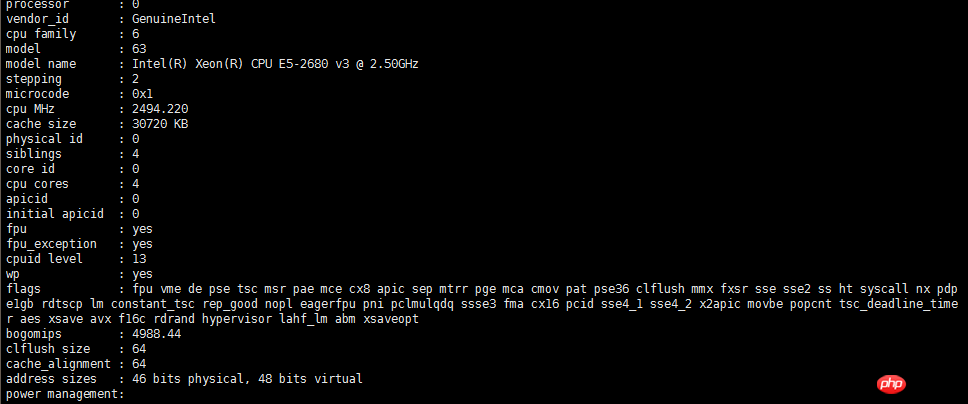
This time I will bring you PHP multi-thread simulation to realize flash sales and order grabbing activities (with code). What are the precautions for PHP multi-thread simulation to realize flash sales and order grabbing activities. The following is a practical case. Get up and take a look.
Let’s talk about the idea of the flash kill module first:
User flash kill operation under normal circumstances
1. Initiate a flash kill request
2. Enter the flash kill queue
3. Randomly lag 1 - 2 seconds for the flash sale result query request (it can be regarded as a disguised diversion)
4. If successful, the order will be generated
5. Return result
The following is the code to simulate the flash sale:
<?php
set_time_limit(0);
/**
* 线程的执行任务
*/
class Threadrun extends Thread
{
public $url;
public $data;
public $params;
public function construct($url, $params=[])
{
$this->url = $url;
$this->params = $params;
}
public function run()
{
if(($url = $this->url))
{
$params = [
'goods_id' => 1,
'activity_id' => 1,
'user_id' => isset($this->params['user_id']) ? $this->params['user_id'] : $this->getCurrentThreadId(),
];
$startTime = microtime(true);
$this->data = [
'id' => $params['user_id'],
'result' => model_http_curl_get( $url, $params ),
'time' => microtime(true)-$startTime,
'now' => microtime(true),
];
}
}
}
/**
* 执行多线程
*/
function model_thread_result_get($urls_array)
{
foreach ($urls_array as $key => $value)
{
$threadPool[$key] = new Threadrun($value["url"],['user_id'=>$value['user_id']]);
$threadPool[$key]->start();
}
foreach ($threadPool as $thread_key => $thread_value)
{
while($threadPool[$thread_key]->isRunning())
{
usleep(10);
}
if($threadPool[$thread_key]->join())
{
$variable_data[$thread_key] = $threadPool[$thread_key]->data;
}
}
return $variable_data;
}
/**
* 发送 HTTP 请求
*/
function model_http_curl_get($url,$data=[],$userAgent="")
{
$userAgent = $userAgent ? $userAgent : 'Mozilla/4.0 (compatible; MSIE 7.0; Windows NT 5.2)';
$curl = curl_init();
curl_setopt($curl, CURLOPT_URL, $url);
curl_setopt($curl, CURLOPT_RETURNTRANSFER, 1);
curl_setopt($curl, CURLOPT_TIMEOUT, 5);
curl_setopt($curl, CURLOPT_USERAGENT, $userAgent);
curl_setopt($curl, CURLOPT_POST, true);
if( !empty($data) ) {
curl_setopt($curl, CURLOPT_POSTFIELDS, $data);
}
$result = curl_exec($curl);
curl_close($curl);
return $result;
}
/**
* 友好的打印变量
* @param $val
*/
function dump( $val )
{
echo '<pre class="brush:php;toolbar:false">';
var_dump($val);
echo '';
}
/**
* 写日志
* @param $msg
* @param string $logPath
*/
function writeLog( $msg, $logPath='' ) {
if( empty($logPath) ) {
$logPath = date('Y_m_d').'.log';
}
if( !file_exists($logPath) ) {
$fp = fopen( $logPath,'w' );
fclose( $fp );
}
error_log( $msg.PHP_EOL, 3, $logPath);
}
/**
* 生成日志信息
* @param $result
* @param $timeDiff
* @return bool|string
*/
function createLog( $result, $timeDiff ){
if( empty($result) || !is_array($result) ) {
return false;
}
$succeed = 0;
$fail = 0;
foreach( $result as $v ) {
$times[] = $v['time'];
$v['result'] === false ? $fail++ : $succeed++;
}
$totalTime = array_sum( $times );
$maxTime = max( $times );
$minTime = min( $times );
$sum = count( $times );
$avgTime = $totalTime/$sum;
$segment = str_repeat('=',100);
$flag = $segment . PHP_EOL;
$flag .= '总共执行时间:' . $timeDiff . PHP_EOL ;
$flag .= '最大执行时间:' . $maxTime . PHP_EOL;
$flag .= '最小执行时间:' . $minTime . PHP_EOL;
$flag .= '平均请求时间:' . $avgTime . PHP_EOL;
$flag .= '请求数:' . $sum . PHP_EOL;
$flag .= '请求成功数:' . $succeed . PHP_EOL;
$flag .= '请求失败数:' . $fail . PHP_EOL;
$flag .= $segment . PHP_EOL;
return $flag;
}
/**
* 发起秒杀请求
*/
function insertList( $urls, $logPath='' )
{
$t = microtime(true);
$result = model_thread_result_get($urls);
$e = microtime(true);
$timeDiff = $e-$t;
echo "总执行时间:" . $timeDiff . PHP_EOL;
foreach( $result as $v ) {
$msg = '用户【' . $v['id'] . '】秒杀商品, 返回结果 ' . $v['result'] . ' 用时【' . $v['time'] . ' 秒】 当前时间【'.$v['now'].'】';
writeLog( $msg,$logPath );
}
$logStr = createLog( $result, $timeDiff);
writeLog( $logStr, $logPath );
return $result;
}
//发起秒杀请求
for ($i=0; $i < 1000; $i++)
{
$urls_array[] = array("name" => "baidu", "url" => "http://***.***.com/seckill/shopping/listinsert");
}
$list = insertList( $urls_array, './inset.log' );
//发起秒杀结果查询请求
$urls_array = [];
foreach( $list as $v ) {
if( $v['result'] === false ) {
continue;
}
$urls_array[] = array(
"name" => "baidu",
"url" => "http://***.***.com/seckill/shopping/query",
'user_id' => $v['id'],
);
}
insertList( $urls_array, './query.log' );Test code machine performance (development machine):

Order code machine performance (test machine):

System test results:
Simulate 1000 concurrency situations, 300 orders per second on a single machine, and the server has no pressure.
On the contrary, the test machine couldn't bear it, and the CPU surged by 100%. Apache occasionally crashes.
I don’t know if it’s because PHP multi-threading and Windows environment don’t support it well, or it’s a problem with PHP multi-threading itself. A mere 1,000 threads can’t run. Multi-threading still requires Python and C.
I believe you have mastered the method after reading the case in this article. For more exciting information, please pay attention to other related articles on the php Chinese website!
Recommended reading:
Detailed explanation of the steps to use the redis counter class
Detailed explanation of the implementation of high-concurrency request processing in php
The above is the detailed content of PHP multi-thread simulation to implement flash sales and order grabbing activities (with code). For more information, please follow other related articles on the PHP Chinese website!




